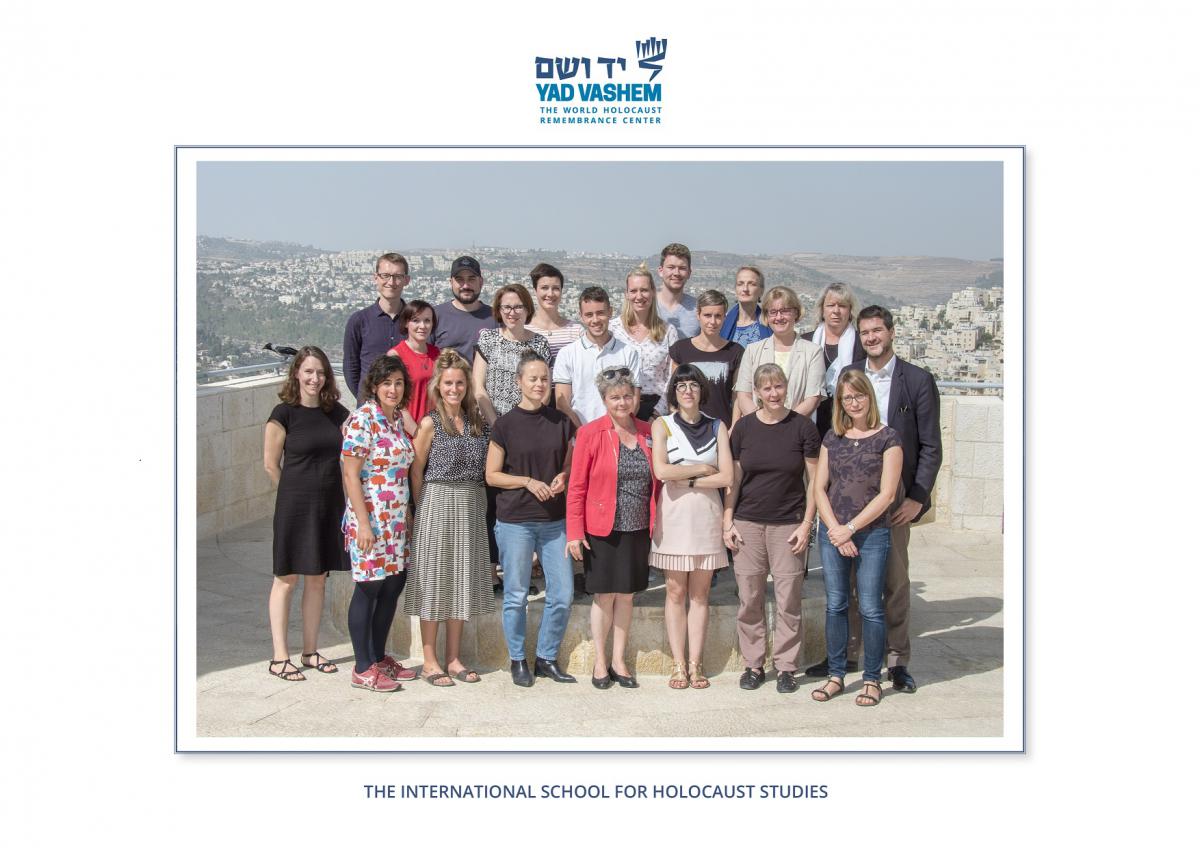Courtesy of Yad Vashem
Courtesy of Yad Vashem
Courtesy of Yad Vashem

Courtesy of Yad Vashem

"It is vital to learn about the lives of individual people before the war, not just as victims of the Holocaust. We must understand how to deal with diversity and complexities in society. I came here to find new and effective tools for teaching today's youth about the Holocaust and its relevance for their own lives."
So said Martina, one of a dozen teachers who traveled last month to Yad Vashem, for a first-ever seminar for educators from Berlin. The seminar followed the signing of an agreement in January 2017 that encourages cooperation between Berlin and the World Holocaust Remembrance Center in promoting Holocaust education, research and commemoration, including networking between German and Israeli colleagues about pedagogical practices. Martina a teacher of 16-18-year-olds at Anna-Freud-Schule, Berlin, also instructs teachers in how to relay the events of the Holocaust to younger children in an age-appropriate manner. It is a challenging job, and she arrived at Yad Vashem hoping to gain the most updated and effective tools for educating German students on this difficult subject.
During educational seminars at Yad Vashem, participants experience a week of intense lectures by leading experts, engage in workshops, hear firsthand eyewitness testimony from Holocaust survivors, and receive guided tours of the various institutions and sites located on the Mount of Remembrance in Jerusalem, including Yad Vashem's award-winning Museum Complex. Yad Vashem focuses on Jewish life before, during and after the period of Nazi persecution, providing teachers with the vital information necessary to understand the tremendous loss of the whole of humanity as a result of the murderous ideology and practices of the Nazi regime. Martina was especially intrigued by the lecture "A Street in Poland" – a Yad Vashem teaching model about prewar Jewish life for students aged 15 – and plans to apply this model back home in her classroom with a lesson entitled, "A Street in Berlin."
Martina also organizes the remembrance ceremony for her school every 27 January, the International Day of Commemoration in Memory of the Victims of the Holocaust, during which students hold in-depth discussions on the topic. "The memory of the crimes of National Socialism must be kept alive," Martina explains. "For the future of our society, it is crucial that the generations growing up in a country with a liberal democratic order know that democracy and respect for human dignity are not to be taken for granted but – in all areas of coexistence – must always be defended and cared for."
Regarding the time she spent participating in the seminar at Yad Vashem, Martina could not be more enthusiastic. "[The seminar] was beyond my expectations. The high standard of lecturers, the complex topics tackled, the practical tools we were shown… I felt like a sponge sitting there, absorbing more and more."
Andrea, who teaches at OSZ Handel 1 in Berlin-Kreuzberg, agreed: "While the week was extremely overwhelming, we soaked up the new information presented to us. The excellent choice of topics were pieced together in a very balanced way, tailor-made for the particular challenges we face teaching this sensitive topic in Germany."
Andrea teaches at a vocational school where the Holocaust is no longer part of the regular curriculum, and therefore faces the challenge of how to incorporate this important topic in her classroom. "I plan to organize a few 'outside–the-classroom' projects, using the authentic sites of Berlin to talk about resilience, human values, democratic principles, courage and tolerance. I might also incorporate a 'message of the week' into my teaching, beginning each week with reading about one of the German Righteous Among the Nations [non-Jewish natives of Germany, Austria or Switzerland who helped save Jews during the Holocaust] to my students… thus introducing them to heroic behavior in seemingly little things during dark times." Andrea continues, "That is applicable to today’s life, treating everyone with kindness and dignity – especially minorities."
Andrea also faces the challenge of how to deal with antisemitism brought by students into the classroom. "We are a very international school with many students that were born outside Germany, and I witness a considerable amount of verbal aggression in the classroom – without having time to really discuss this kind of 'imported antisemitism' – which often has no relation to wartime incidents or the Shoah, but refer to anti-Jewish sentiments in mostly Muslim communities. That’s my dilemma: no time, but lots of issues."
The seminar catered not only for teachers, but also for other educators and instructors who deal with Holocaust education. Carolyn, who has worked as an educator, tour guide and author for the past 25 years, thanked the seminar organizers for a "wonderful program." "Despite the difficult theme being discussed, Yad Vashem is a beautiful space for commemoration and mourning, but also a place for reflection and hope – for a better future for generations to come."
Since this was the first seminar from Berlin, Senator of Education Sandra Scheeres participated in some of the discussions and lectures. After touring the Holocaust History Museum, she participated in a commemoration ceremony and visited the Children's Memorial, which commemorates the 1.5 million Jewish children murdered during the Holocaust.









